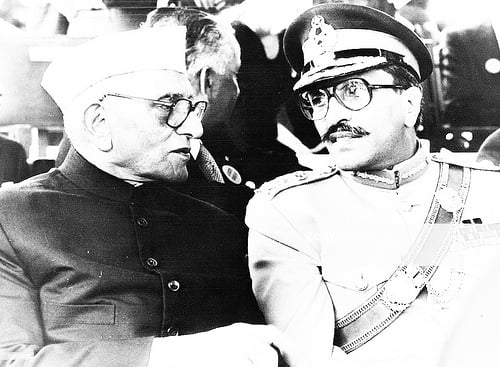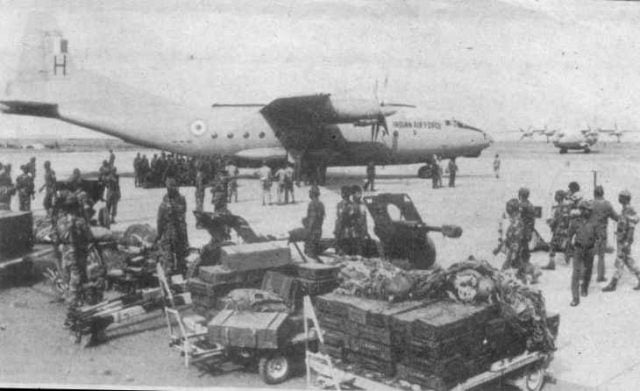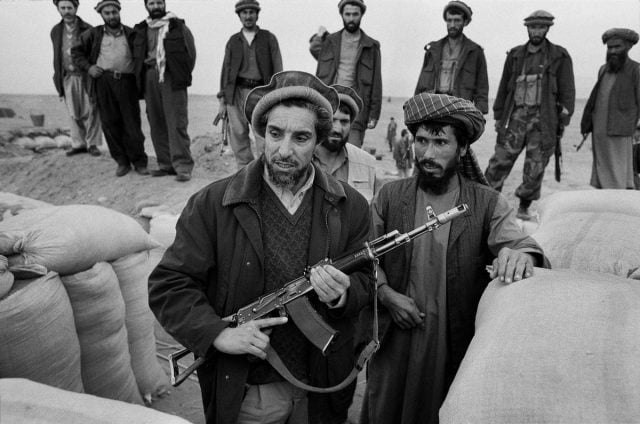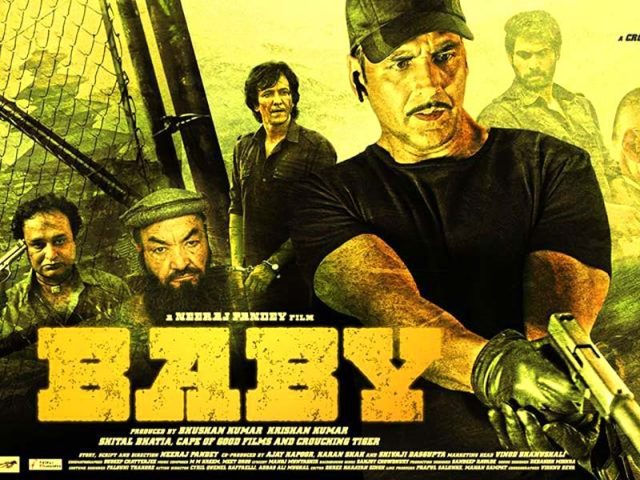The greatest strength of any intelligence or covert operation handling agency is how little people know about it. In a field such as that, anonymity and secrecy are great assets because it has a significant impact on the success of such covert operations.
In India’s case, intelligence gathering and handling of covert operations aren’t limited to a single agency. Where the Research and Analysis Wing is responsible for foreign intelligence gathering and operations abroad, the Intelligence Bureau is responsible for the same domestically. Further, paramilitary commandos of the armed forces have often been employed for covert operations across the border.
However, because of the confidentiality that goes hand in hand with such operations and agencies, most of these covert operations are far from public knowledge and remain so, until de-classified.
Here are some of the lesser known covert operations conducted by Indian agencies.
How India Almost Derailed Pakistan’s Nuclear Programme
The story of Pakistan’s Kahuta Nuclear Power plant is one that should make every Indian citizen proud of the dangerous work done by our intelligence agencies, officers, and assets. Conversely, it is also one that highlights how inadequate the political support system for these officers can be.
In collaboration with Israel’s Mossad, RAW’s officers and its assets on the ground were tasked with investigating the nuclear weapons research programme at Kahuta. In a very resourceful move, these men went on to collect hair samples from barber shops within the vicinity of Kahuta, samples which established contact with radiation and shed light on the progress of Pakistan’s Uranium enrichment programme.
Alas, PM Morarji Desai came to ‘sabotage’ this effort by indiscreetly informing Pakistan’s Zia-ul-Haq that he had knowledge of Pakistan’s programme. Later, when the opportunity to get the blueprints of the plan arose, Desai refused to heed RAW’s advice and pay a hefty bribe for the same.

It is difficult to guess how long Pakistan’s nuclear programme would have been derailed if the PM Desai had agreed to pay the bribe or hadn’t mistakenly confided in Haq of the Kahuta programme.
What is conclusive, however, is the fact that Desai’s mistake allowed Pakistan to not only relocate and securitize the nuclear programme but, also jeopardized the operation and assets on the ground.
When India Came To The Rescue Of The Maldives
India’s recent relationship with the Maldives can be best described as formal, with it being friendly and prickly from time to time. In 1988 however, it was India who came to the help of Maldives’ President, Abdul Gayoom after hundreds of Tamil secessionists threatened to seize Male and overthrow his government.
However, accurate intelligence sources on the ground allowed India to preempt such an attempt and the Indian Air Force had soon covertly airlifted the 6th Parachute Battalion of the Parachute Regiment from Agra within hours. Operation Cactus, as it came to be known succeeded in restoring Gayoom’s government.

The Only Friend To The Northern Alliance
India has enjoyed a deep, historic relationship with the people of Afghanistan, a relationship that persists strongly despite the efforts of terrorist groups to disrupt it.
This was so even in the late 90s, when the Orthodox, Pakistan-backed Taliban had taken over Kabul and the Northern Alliance, the erstwhile Afghani government led by the charismatic Tajik, Ahmed Shah Massoud and former president, Rabbani was in hiding.
Indian intelligence agencies and military provided the Northern Alliance with covert support ranging from reconnaissance and high-altitude warfare equipment to medical supplies.
India also sponsored the establishment of a military hospital at Farkhor, in Tajikistan. Ironically, the assassinated Ahmed Shah Massoud would be one of the first patients at the hospital.

The Indian Paramilitary Forces In The 1971 Indo-Pakistan War
The various covert operations of the Indian army’s para commandos deserve the highest of plaudits. Alas, they often go unsung.
In 1971 for instance, a six-man assault team of para commandos were covertly airlifted a few hundred kilometers inside enemy lines near the Indus, following which they conducted lightening raids that destroyed much of the artillery of the Pakistani battery and engaged and killed several hostiles.
Similarly, in present-day Bangladesh, 2 Para (Airborne), part of the 50 (Independent) Parachute Brigade were involved in a covert military operation that successfully captured and held the strategically crucial Poongli bridge, near Dhaka. They also became the first unit to enter the city and later, liberate the country.
Also Read: Friends Who Demanded Indira Gandhi’s Release By Hijacking A Plane
As audience members with no operational knowledge of any covert operation, it is very difficult for us to judge the authenticity with which these agencies and their world is portrayed in mediums of expression such as books, films and documentaries.
Although it is safe to assume that the world of literature is filled with fairly accurate portrayals of the world (Read any Frederick Forsyth or John Le Carre novel), the visual medium hasn’t enjoyed that degree of confidence yet, with films like Zero Dark Thirty and American Sniper being flagged for American exceptionalism.
Spielberg’s Munich however, remains a nuanced exception, with its portrayal of the Israeli operation in the aftermath of the Black September attacks in Munich being a must watch.
In India however, this genre remains fairly untouched, with only recent films such as Neeraj Pandey’s Baby starring Akshay Kumar and Taapsee Pannu offering a glimpse into the world of covert operations.
Baby, a critically lauded film revolved around the lives of four secret agents tasked with capturing a terrorist, loosely based on Hafiz Saeed, who was responsible for conspiring attacks in India.
With the plot moving frantically from Turkey to India to Nepal to Saudi Arabia, Baby was a thrilling film in the genre. Madras Café too, was a similarly lauded film on covert operations.

There have been previous films that have touched upon the subject such as 16 December, the Sunny Deol-starrer Hero and Ek Tha Tiger but, they have often gotten lost in the standard film formula of romance, song and dance. Thus, it is still too soon to say how this genre will pan out in India.
There is hope however. Neeraj Pandey is set to release the Manoj Bajpayee, Siddharth Malhotra and Naseeruddin Shah-starrer ‘Aiyaary’ soon. Considering his previous directorial credentials in making thrilling films and the fact that the protagonists in ‘Aiyaary’ play army intelligence officers, we can anticipate that this film might become the gold standard for the genre and subvert the usual tropes of song and dance that have been long associated with Indian films.
The work of our Intelligence agencies and armed forces deserve a lot of credit and plaudits and at the very least, our highest respect. The visual medium, our films, TV Shows and documentaries can go a long way in shedding some light on the bravery of these officers.
Image Sources: Google Images
Read more at:
http://edtimes.in/2017/07/why-aiyaary-is-one-of-the-most-anticipated-films-of-2018/

































good research and nice written , Indian army is no doubt best in world.We are proud of , our army .
Well highlighted. Many unsung remain forgotten! Just to set the record straight it is Special Forces or Para Commandos and not Paramilitary! In fact we have only two Paramilitary in India(Assam Rifles and SFF) as majority of the erstwhile Paramilitary Organisations chose to shed the military tag and preferred the police tag(CAPF/CPO) thereby opting to be feared rather than being revered!!